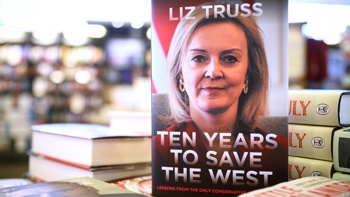
A new international study has tackled the global phenomenon of “bulls****ing”, and the findings reveal the habit of lying about your skills and abilities is a well-known part of everyday life.
The study, from scientists at University College London, focused on teenagers around the world and linked psychological traits like overconfidence to the ability to tell a tall tale. The researchers also found Australians and New Zealanders aren’t as honest as they’d like to think, and North Americans are the most likely to lie.
The large study, which examined 40,550 young people from nine English speaking countries, looked at the confidence teens felt in themselves versus their ability to do maths and other problem solving tasks. It also looked at their social skills.
The size of the study allowed researchers to compare a number of different groups, including men versus women and socially advantaged versus disadvantaged groups.
‘Bull****ing’, a well-known everyday phenomenon, has been understudied, said John Jerrim who led the study at UCL’s Institute of Education. “Who bulls***s, and the psychological traits they share, are important questions to answer.”
The study compares bulls****ing with other “psychological traits, including overconfidence, self-perceptions of popularity among peers and their reported levels of perseverance”.
The researchers have published the findings, including that on average, young men were bigger liars than young women.
They also say teens who grow up with financial advantage are more likely to tell lies than those who grow up with less money and privilege.
The study also compared teens from different countries and their propensity to lie. The study found young people from North America are more likely to “make exaggerated claims about their knowledge and abilities” than teens from England, Australia and New Zealand.

The study out of UCL compared teens from nine English speaking countries.Source:Supplied
The most honest teens, by country, were those from Ireland and Scotland, who were found to be least likely to exaggerate their knowledge and ability.
They also found teens who lie are generally overconfident, more likely to lie about working hard and more likely to be popular at school.
So what does this mean?
Well, despite having pretty negative associations, being a bull****er might not be a bad thing, according to the findings. The study said when it comes to grant applications and job interviews, being able to lie proved useful.

Australia falls around the middle of rankings for bullshit in most of their findings.Source:Supplied
The researchers says they’d like to continue with further study, as they were limited by only testing lying as it related to maths problems.
“Future work should consider the overlap between bulls****ing with respect to different areas of life — such as young people’s knowledge/experience of drug taking or of their sexual experiences (for instance),” the findings read.
“Despite these limitations, we believe this paper has started to open an important new area of social science research.”
Take your Radio, Podcasts and Music with you









